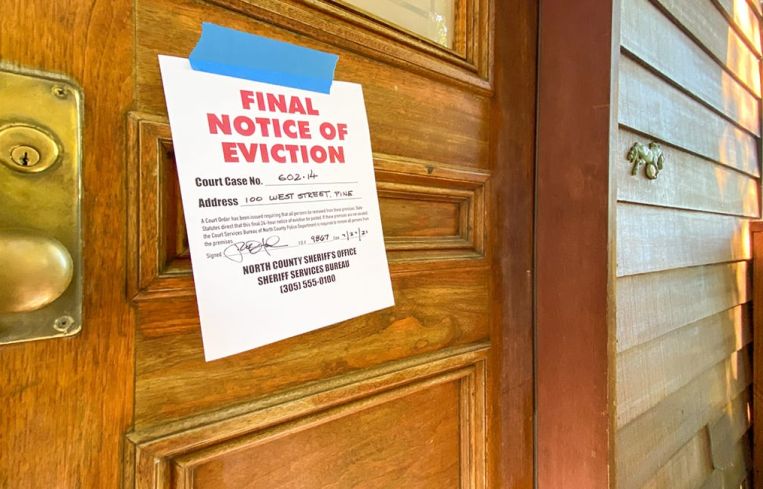National Eviction Moratorium Until Dec. 31 Aims to Curb Coronavirus Spread
CDC order does not cancel or forgive rent, but it protects renters who earned $99,000 or less
By Greg Cornfield September 1, 2020 6:40 pm
reprints
Federal officials are halting residential evictions across the nation in an effort to curb the spreading coronavirus. The order will be effective through Dec. 31.
The Centers for Disease Control and Prevention (CDC) will issue an order protecting an estimated 30 to 40 million American renters who could be at risk of eviction for nonpayment of rent due to economic shutdowns. The order covers people who are unable to pay rent and who will earn no more than $99,000 in annual income for calendar year 2020, or no more than $198,000 if filing a joint tax return.
The order does not cancel or forgive rent, and it does not preclude landlords from charging or collecting fees, penalties or interest as a result of the failure to pay rent or other housing payment under the terms of any contract.
The CDC cited the increased risk of spreading coronavirus if a wave of evictions forced millions of renters out of their homes. There have been more than 6 million cases of coronavirus in the U.S. as of Tuesday, including 288,876 in the past seven days, and 183,050 total deaths.
The order does not apply in any state with a moratorium on residential evictions that provides the same or greater level of public-health protection than the requirements listed. It is unclear yet exactly how the federal order will affect individual state orders like California’s eviction measure approved Monday night that requires tenants to pay 25 percent of their rent, and will be in effect until Jan. 31. But state lawmakers there said their “stopgap” measure would allow them to figure out how the federal government would address the crisis nationally.
Diane Yentel, president and CEO of the National Low Income Housing Coalition, told Commercial Observer that a uniform, national moratorium on evictions “is long overdue and badly needed,” but she said it is a half-measure that “extends a financial cliff for renters to fall off of” when back rent is owed.
“As we have said for five months, the very least the federal government ought to do is assure each of us that we won’t lose our homes in the middle of a global pandemic: the administration’s action would do so and will provide relief from the growing threat of eviction for millions of anxious families,” she said via email. “But … this action delays but does not prevent evictions. Congress and the White House must get back to work on negotiations to enact a COVID-19 relief bill with at least $100 billion in emergency rental assistance… [to] keep renters stably housed and small landlords able to pay their bills and maintain their properties during the pandemic.”
A survey conducted by the U.S. Census Bureau from July 16 to 21 showed 3.8 million renter households reported “little to no confidence” in their ability to pay rent in August.
The CDC said the pandemic presents a historic threat to public health and that evicted renters must move, which leads to multiple scenarios that increase the risk of coronavirus spread. And, despite the efforts of border closures, restrictions on travel, stay-at-home orders and mask requirements, coronavirus continues to spread “and further action is needed.”
“In the context of a pandemic, eviction moratoria — like quarantine, isolation and social distancing — can be an effective public health measure utilized to prevent the spread of communicable disease,” the order reads. “Housing stability helps protect public health because homelessness increases the likelihood of individuals moving into congregate settings, such as homeless shelters, which then puts individuals at higher risk to COVID-19.”
To utilize protections from the CDC’s order, tenants must provide to their landlord or the owner of the residential property an executed copy of a declaration form stating inability to pay or a similar declaration under penalty of perjury.



